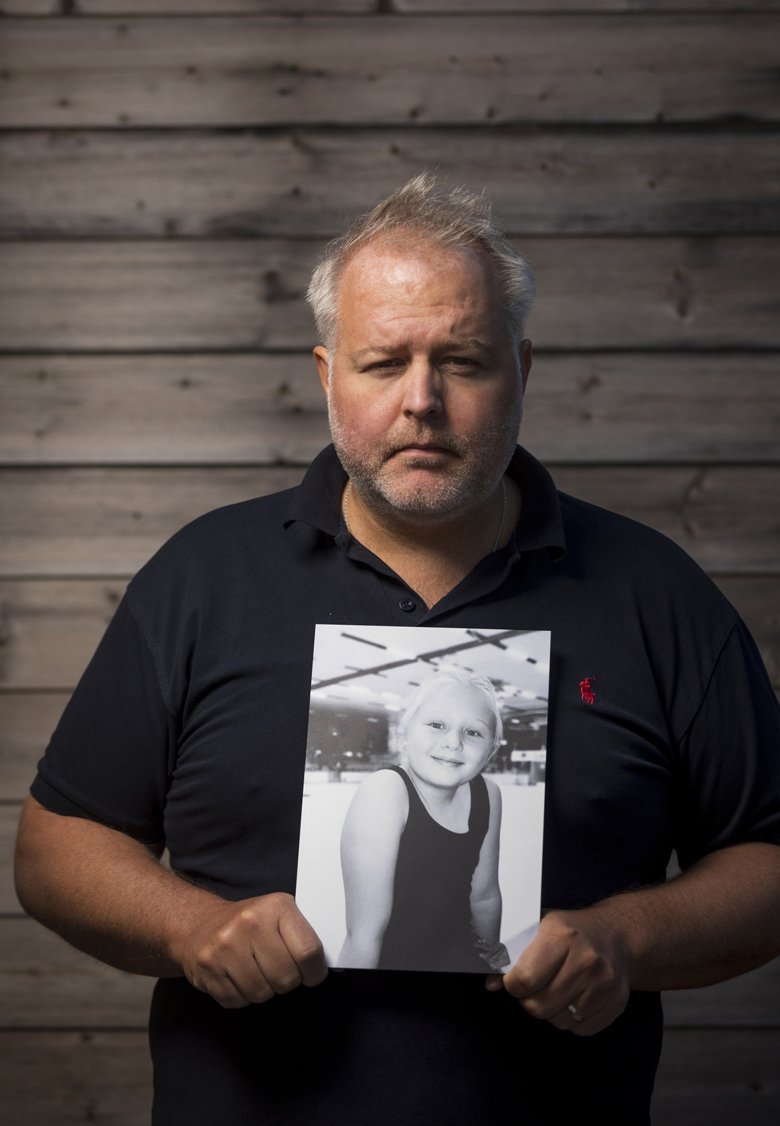“I want Embla’s memory to live on”
Name: Magnus Strandqvist
Age: 44.
Lives: Helsingborg.
Occupation: Correctional officer.
Story: Chose to let his daughter donate her organs after a traffic accident.

“My hell, to put it bluntly, started when a police officer called me and asked me to come to the hospital immediately. I was not told what it was about. I rush in, worried about my parents. When I got there, I saw my wife’s bag unattended on the floor. That was when I understood that something had happened to my own family.
They had been in a traffic accident. I was taken to a room with police officers, a counsellor, a priest and a nurse. They began listing things: One of my daughters hade hurt her finger. My wife was seriously injured. And my ten year old daughter, Embla, was brain dead. It was all so chaotic.
I questioned the doctor in charge of Embla’s case, I thought that another doctor will probably come along, someone more skilled, who could find some way of treating her. Several other relatives had the same reaction. But all the doctors said the same thing. The next day, Embla’s doctor asked me if I had given any thought to organ donation. I explained that I had no interest in it. At the time, I was still thinking that something would save Embla.
I then went to my father-in-law, Embla’s grandfather, and told him what the doctor had said. That was when my father-in-law, a very wise man, said that he wanted to give his perspective. He said that even if we will not get to experience any Christmases and graduations with Embla, there are other children who might get to experience these things, if Embla was allowed to help them.
Having spoken to my father-in-law for a while, I changed my mind and told the doctor. My wife was also asked. The doctor was able to make contact with her and she gave a strained thumbs up. Embla donated organs to five other people. Four children and one adult. The child who received her heart was an emergency, and they needed the heart then and there to survive.
Even if Embla is no longer with us, there are others whom she has helped.
It gives some form of comfort that our daughter’s life was not meaningless, in the midst of all the meaninglessness of the car accident. To me, Embla is a hero. I want to tell people this story so that her memory may live on.”
As told to: Annika Lund
First published in Swedish in the magazine Medicinsk Vetenskap no. 2/2020
